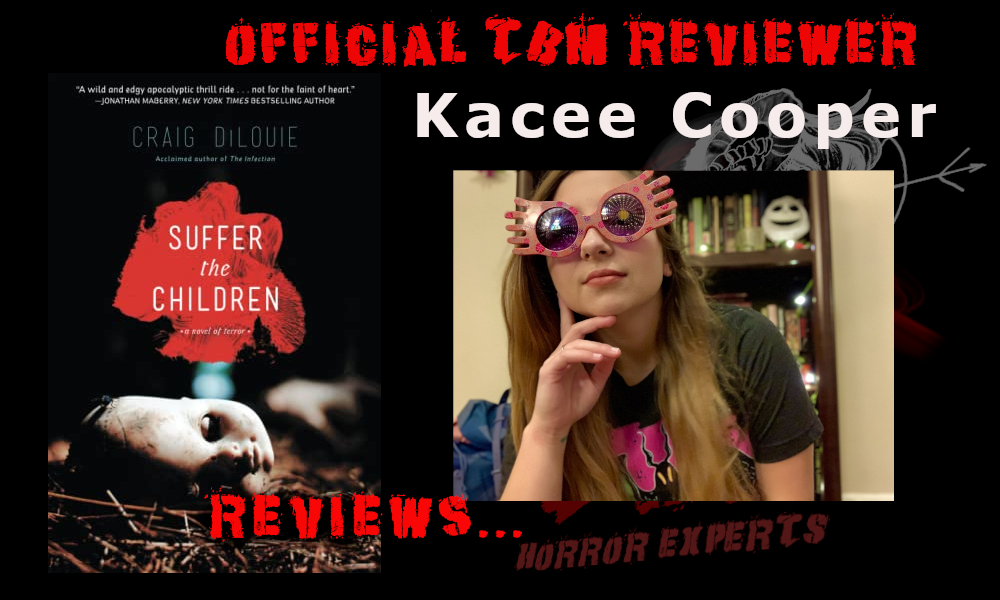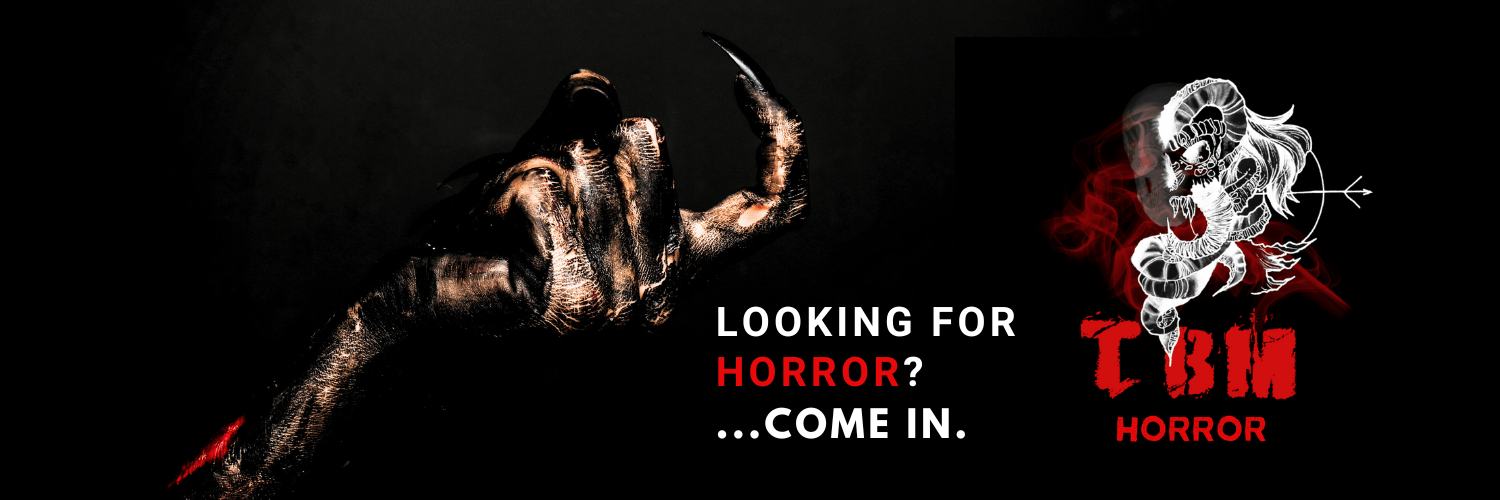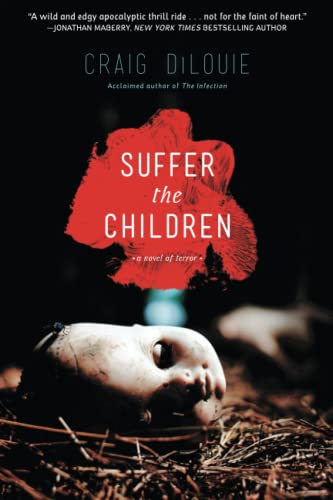
Synopsis
A mysterious disease claims the world’s children before bringing them back. To continue surviving, however, they need to ingest human blood. As the blood supply wanes, parents struggle and compete to keep their children alive. In the end, the only source left will be each other. For them, the ultimate question will be: How far would you go for someone you love?
In his 2014 apocalyptic horror novel Suffer the Children, Craig DiLouie presents a story whose plot can easily be called every parent’s nightmare: an unknown disease kills every child across the globe in the blink of an eye. DiLouie thrusts readers into a cold, Michigan winter close to Christmastime. Prefacing each chapter is an hourly countdown to what the characters deemed the “Herod Event”, providing the readers with a sense of foreboding and dread, as there is no explanation of what this “Herod Event” is or what it will bring to these characters.
Once the final hour arrives, children all across the world begin to drop dead due to a disease called Herod’s Syndrome. This disease only affects children who have not yet reached puberty, for the adults
and teenagers are simply carriers of a dormant version of it. Naturally, as any good apocalyptic horror novel does, this tragedy occurs after the readers become connected to the characters, the parents of the children that died. After the mass child burials attended by their grieving parents, the children begin to come back to life.
Literally rising from the grave, each child slowly makes their way back to their parents, and the families try to carry on as normal. Except these children are not normal, not anymore. These children demand blood… human blood, and their parents will stop at nothing to make sure to feed their children. The novel presents an interesting dynamic that leaves readers questioning who the true “monster” of the story is: the undead children drinking the blood of the living, or the parents determined to keep their children alive.
What makes this book so impactful (and devastatingly sad) is the clear social commentary being made about America’s class structure, the family dynamic, and, most importantly, human nature. There is a clear divide between the rich and the poor, the haves and the haves not, but it is portrayed in a way that is as creative as it is upsetting. The characters in this novel make up the latter of those groups, enduring typical financial struggles that any blue-collar family faces, except with an apocalyptic twist. In one chapter, the readers are guided through Joan’s perspective, as she slowly wastes away doing what she deems necessary for her children, and performing the mundane task of grocery shopping.
What makes this book so impactful (and devastatingly sad) is the clear social commentary being made about America’s class structure, the family dynamic, and, most importantly, human nature.
Kacee Cooper
Joan, a mother of two, sees other moms in similar husk-like states, arms decorated with medical gauze wrapped around a cotton ball to stop the blood flow after their continuous “transfusions” for their children. One mother, however, stands out amongst the other moms in that grocery store. Although she too is wearing that parental badge of honor–the gauze proudly displayed and wrapped around her arm–she is the only mother whose child is present. She is also the only mother with color in her cheeks. For the other mothers in that store, this lively mother represents both wealth and privilege, a woman whose child is actually being fed by the blood of people like Joan.
Fueled by despair and rage, with the pain of not being able to keep their children alive, the mothers attack this outlier, a metaphorical symbol of everything they lack as mothers. Human nature at its finest: the underdog biting back in a destructive way. However, DiLouie does not stop there, at a clear representation of systemic class struggles; he continues by describing what happens once the moms are finished draining the blood from the wealthy women. To add a social class insult to injury, Joan sees that there are no transfusion markings under this woman’s gauzed arm. That this definitive component of their dedication to motherhood is nothing more than a fashion statement to this woman.
[…] a metaphorical symbol of everything they lack as mothers. Human nature at its finest: the underdog biting back in a destructive way.
Kacee Cooper
Although very atypical in terms of apocalyptic horror, DiLouie delivers readers a mashup of literary and apocalyptic horror–one that is written in such a way that cements the image clusters in their minds; one that is written in such a way that is both deeply unsettling and deeply realistic.




